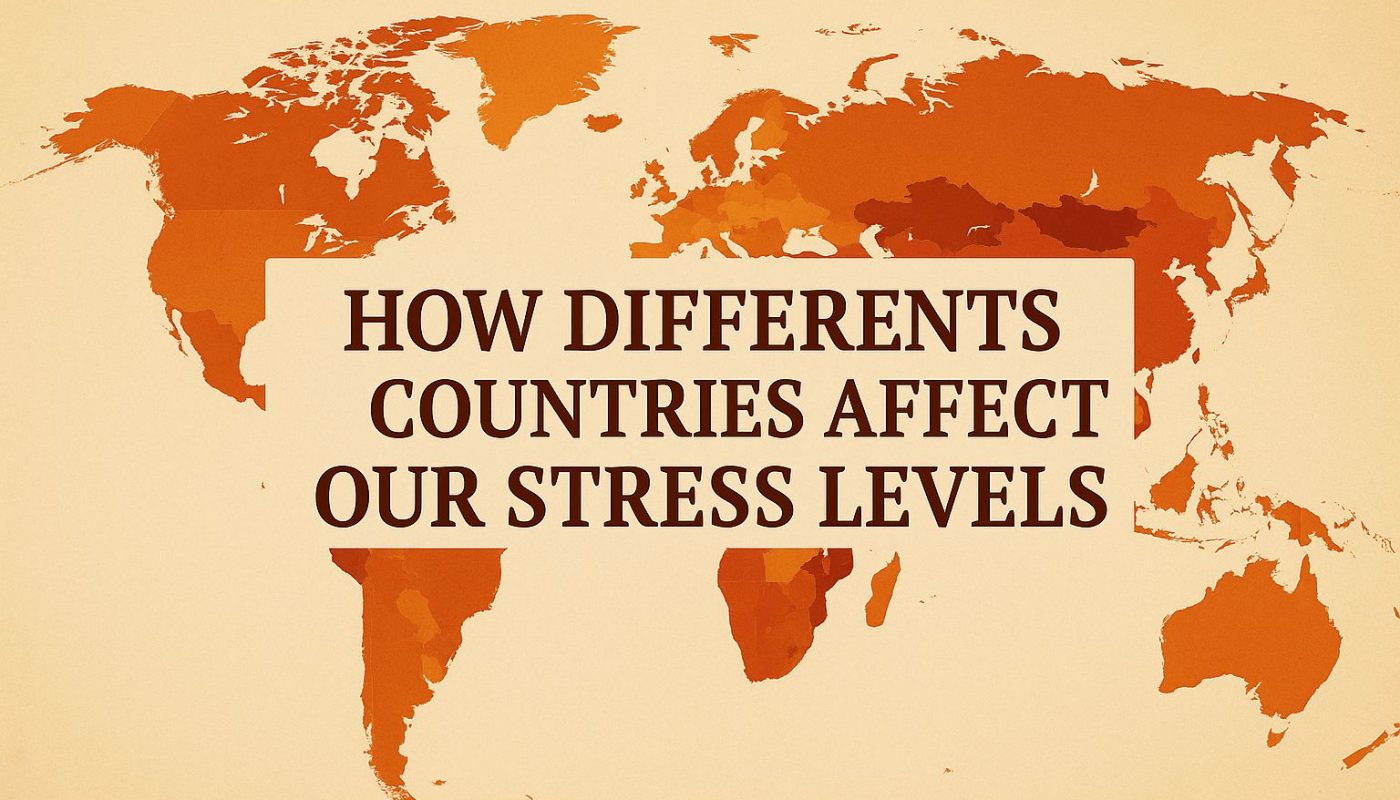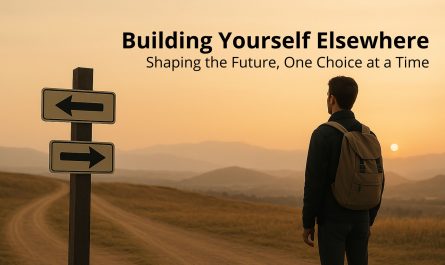We often think of stress as something personal, poor time management, lack of sleep, or too much on our plates. But when you zoom out, it becomes clear:
Stress isn’t just an individual issue. It’s built into the way we work. This blog isn’t about self-help. It’s about something bigger: how your country’s work culture and the system behind it quietly shape your stress, your energy, and your well-being.
🎥 Watch this short video:
https://www.instagram.com/reel/DKG6jR_MDP8/?utm_source=ig_web_copy_link&igsh=MzRlODBiNWFlZA==
Since moving to Switzerland, I’ve often felt like I’m falling behind, even when I’m doing everything “right.”
📊 Let’s See What the Data Shows
- In Switzerland, nearly 40% of workers report feeling exhausted. The country also ranks among the longest working hours, especially for full-time employees. (43 hours)
- In the EU, 1 in 3 workers experience high levels of work-related stress (Eurofound, 2021).
- In the US, stress at work affects 77% of employees and is linked to over 120,000 deaths every year (OSHA).

Productivity Has a National Personality
In countries like Switzerland, productivity is often linked to precision, reliability, and high output. These are great values until they become overwhelming. The expectation to always be efficient can quietly become a source of chronic stress.
Being “productive” can easily turn into:
- Skipping breaks
- Always being reachable
- Squeezing more into less time
- Feeling guilty when you rest
These aren’t bad habits. This mindset shows up in individual routines, but it’s reinforced by company culture, national standards, and in many cases, economic identity.
🔄 Some Countries Are Changing Those Settings
Across Europe, governments and organizations are beginning to respond:
- Denmark maintains one of the shortest average workweeks in Europe (37 hours), high job flexibility, and strong parental leave, and consistently ranks among the least stressed workforces in the EU.
- France introduced the “Right to Disconnect” law, giving employees the legal right to ignore work emails outside office hours
- Finland pioneered flexible working hours as early as the 1990s, now allowing employees to adjust up to 50% of their schedules
- The Netherlands promotes part-time work even at senior levels, with clear productivity expectations, not presenteeism
- Sweden promotes flexible working, reduced hours, and employee autonomy, and reports some of the lowest workplace stress levels
What Can You Take from This (Without Moving to Denmark)?
Here’s the reality: most of us can’t rewrite national labor policy. However, we can observe where the pressure to overwork is coming from and challenge the assumption that more always means better. You don’t have to overhaul the culture. But you can learn to work with it, not against it.
- Know the pace: If your country moves faster, don’t try to slow the system-structure your energy to match it (with rest built in intentionally).
- Don’t copy the noise: Everyone might be working late, but is it actually productive? Protect your boundaries.
- Redefine productivity for yourself: Use outcomes, not hours, as your metric.
- Design your week like a local -but protect your capacity like a strategist.
If your country, company, or culture doesn’t make space for sustainable productivity, maybe you need to start making that space yourself.
📥 I’d love to hear where you’re working from and what your experience has been.




I had been living in Istanbul for almost 5 years and I think city is definitely affects your stress level 🙂 crowdedness and traffic has really bad impact on me at least
Oh, Ceren, I totally get where you’re coming from. Living in a big, crowded city like Istanbul can definitely take a toll on your stress levels, I adore this city though, hahaha
Really insightful post! It made me reflect on how much the environment around us contributes to stress and I couldn’t help but think of Warsaw. It’s a city full of energy and opportunity, but at the same time, the fast pace, long commutes, and pressure to constantly perform can be overwhelming. Sometimes it feels like stress isn’t a personal failing, but a byproduct of the city’s rhythm. This article really puts that into perspective.☺️
Hi Adela, I’m so glad the post resonated with you! You’re spot on about Warsaw. Anytime I visited, I had a feeling that it’s a city that thrives on energy and opportunity, but at the same time can create a lot of pressure. Thanks for sharing your perspective!
Time management has become a central issue in today’s world – especially in industrialized countries, where time is considered the most valuable resource. Work takes up a significant portion of our lives. Whether in a home office or on-site, professional responsibilities are often time-consuming and closely tied to stress.
In large cities, the situation is made worse by heavy traffic, which leads to a substantial loss of time each day. Many people also suffer from poor and insufficient sleep. Yet maintaining a balanced rhythm is essential: eight hours of work, eight hours of sleep, and eight hours for personal life. This balance is crucial for both physical and mental health.
When this balance is disrupted, burnout – one of the most common conditions of modern life – often follows. Preventing it requires mindful time use and proactive self-care.
Another key factor that is often underestimated is our social environment. Recent studies show that loneliness is one of the most pressing issues people face today. It’s not just a psychological burden – it can have serious medical consequences and long-term effects on health.
That’s why a fundamental shift in thinking is needed: we must bring work and life into a healthier relationship. We shouldn’t live to work – we should work in order to live well.
Hi Zaza, I appreciate your self reflection so much! You’ve made an excellent point about the pressures of modern life, especially the importance of balancing work, sleep, and personal time. The impact of time mismanagement, like stress and burnout, can be significant, and prioritizing self-care and a supportive social environment is crucial. A shift in mindset towards a healthier work-life balance is definitely needed to improve overall well-being.
This is such an important and timely topic. Especially in today’s fast-paced world, it’s essential to reflect on balance, health, and quality of life. Thank you for this valuable perspective!
Hi Salome, thanks for sharing your thoughts. It’s always refreshing to have conversations about making life more sustainable and fulfilling!
Such a refreshing take! Love the reminder that stress isn’t just personal, it’s often built into the system. A much-needed perspective in today’s work culture.
Exactly! So often, we internalize stress and think it’s solely our responsibility to manage, but a lot of it is systemic: high expectations, unrealistic work hours, and constant connectivity all contribute. It’s definitely time to rethink how we approach work culture, not just individual productivity. I’m glad that this perspective resonates with you!
People really need to stop treating stress like it’s a personal failure. So much of it comes from the systems and environments around us, not just from us. As the Thai say- sabai sabai!
OMG, I love sabai sabai! Absolutely, let’s goooo! It’s such a great reminder to take things easy and not let stress consume us.
From My experience people really try to don’t stress each other at the work but out of work you need time to relax and at the winter time the day is so much short and sun is already less and gone for all winter , that was make me very stressful, even if I was not big fan of sun before ..
I totally get that. The lack of sunlight in the winter months can really affect your mood and energy levels, even if you’re not normally a “sun person.” It’s like your body naturally craves that brightness and warmth. And when days are shorter, it can feel like the day just slips away before you even have a chance to relax. Finding ways to manage that seasonal stress, like cozy indoor activities was really helpful for me.